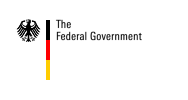One of their core tasks is the surveillance of macro-economic development. However, over the years, the G7 finance ministers and central bank governors have begun to focus on a number of other topics of international significance in addition to global economic issues. These include the prevention or management of monetary crises in emerging economies, debt relief for HIPC countries, and the fight against money laundering and terrorist financing.
The G7 process is characterised by information sharing, opinion-forming and joint actions. The G7 is an informal forum. Its Secretariat is run by the respective presidency, changing hands on a yearly basis between the members of the G7 group (France, USA, United Kingdom, Germany, Japan, Italy, Canada).
First 2007 meeting of G7 finance ministers and central bank governors
The first 2007 meeting of G7 finance ministers and central bank governors will take place in Essen on 9/10 February 2007, presided over by German Finance Minister Peer Steinbrück.
During his presidency of the finance minister process, Germany will primarily focus on central issues of fiscal policy. These include, in particular, consolidating macroeconomic stability, the role of hedge funds in the stability of international financial markets, and the quality and sustainability of public finances.
Further topics of the German presidency will be the development of capital markets in emerging market economies, the promotion of growth and the fight against poverty by effecting improvements in the public finance sector of developing countries, and fiscal policy for the promotion of energy efficiency and of an energy strategy increasingly reliant on renewable energies. Another topic will be how the international financial institutions IMF and World Bank should adapt to meet changing global conditions.
Information for the accreditation
Media representatives may now apply for accreditation for the meeting of G7 finance ministers and central bank governors in on 9/10 February 2007.
>> To the accreditation form
Startseite
Meeting of the G7 finance ministers and central bank governors in Essen on 9/10 February 2007
Mon, 27.11.2006
Downloads
Since the mid-1980s, the G7 heads of state and government have increasingly entrusted issues of exchange and interest rate policy as well as monetary and budgetary policy to their finance ministers and central bank governors. These have been meeting regularly since 1986 in an institutionalised setting with the aim of closely coordinating their policies.
